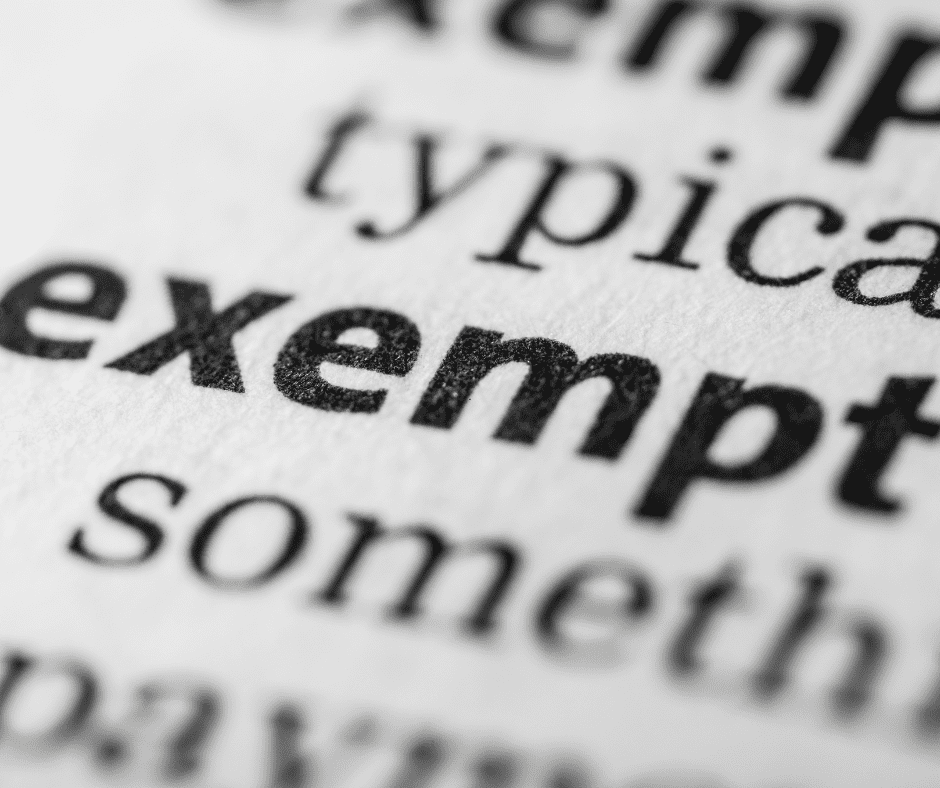Thinking about what happens after you pass away is never easy. But planning ahead can save your loved ones from extra stress and expense. One of the most common concerns we hear at DMA Law is: “Does my spouse have to pay Inheritance Tax if I die?”
It’s a perfectly natural question—and one that many married couples, civil partners, and families across the UK are asking. The rules around Inheritance Tax (IHT) can feel confusing. It’s not always clear who pays what, when, or how.
This guide explains how Inheritance Tax works for married couples and civil partners in the UK. We’ll break down your legal rights, exemptions, and what steps you can take to protect your family’s future.
Whether you’re writing a Will, managing an estate, or just planning ahead, this article will help you understand:
- Whether your spouse or civil partner will have to pay Inheritance Tax
- How the spouse exemption works under UK law
- What the Inheritance Tax thresholds are and how they apply
- How to use nil rate bands and reduce tax for your family
- What happens to the family home and other assets
- Why making a Will is essential for proper planning
- The difference between married and unmarried couples
- Common myths about inheritance and tax
- When legal advice is recommended
At DMA Law, we support individuals and families across the North East with friendly, expert advice on estate planning, Wills, and Probate. Our goal is to help you make informed decisions—so you can protect what matters most.
Do Spouses Pay Inheritance Tax in the UK?
If you’re legally married or in a civil partnership, your spouse does not have to pay Inheritance Tax (IHT) on anything you leave them when you die.
This is because UK law offers a 100% spousal exemption. It means any assets passed from one spouse or civil partner to the other are completely free from Inheritance Tax—regardless of the estate’s size or value.
What Is the Spousal Exemption?
The spousal exemption is a key rule in UK tax law. It ensures that married couples and civil partners can pass on their estate to each other without triggering a tax bill. This exemption applies automatically and doesn’t require special paperwork, as long as:
- You were legally married or in a civil partnership at the time of death
- The recipient is permanently based in the UK for tax purposes
Who Pays What?
To simplify, here’s how Inheritance Tax is treated in different situations:
- Married or civil partners:
0% Inheritance Tax on everything left to your spouse or civil partner - Unmarried couples:
Inheritance Tax may apply above the tax-free threshold (currently £325,000) - Children, grandchildren, or other relatives:
Tax may be due on amounts over the threshold, depending on the estate value and any exemptions used
Why This Matters
This exemption can help couples plan their estates more efficiently. By leaving assets to a spouse, you not only avoid Inheritance Tax on first death—you also allow the surviving spouse to inherit unused tax-free allowances, potentially reducing tax for children or other heirs later on.
In short, if you’re married or in a civil partnership, your spouse won’t face an Inheritance Tax bill when you die. But estate planning is still important if you want to reduce tax for the next generation.

What Is the Inheritance Tax Threshold?
In the UK, the Inheritance Tax threshold is known as the Nil Rate Band (NRB). This is the amount of your estate that can be passed on tax-free when you die.
As of 2025, the NRB is £325,000 per person. If your estate is worth less than this, no Inheritance Tax (IHT) is due. Anything above this amount may be taxed at 40%, unless exemptions or reliefs apply.
How the Residence Nil Rate Band Works
IIf you leave your main home to your children or grandchildren, you may also qualify for the Residence Nil Rate Band (RNRB).
- The current RNRB is £175,000
- It can only be applied to your primary residence
- The home must be left to direct descendants (such as children, stepchildren, or grandchildren)
This means your total tax-free allowance could be as high as £500,000, depending on your estate’s structure and who inherits it.
Transferring Unused Allowances Between Spouses
For married couples and civil partners, any unused NRB and RNRB from the first spouse to die can be For married couples and civil partners, any unused NRB and RNRB from the first spouse to die can be transferred to the surviving spouse.
This means that when the second partner dies, their estate may benefit from:
- A combined Nil Rate Band of up to £650,000
- A combined Residence Nil Rate Band of up to £350,000
- A total possible IHT-free allowance of £1 million
You don’t need to apply at the time of the first death—the unused allowances can be claimed by the Executor when the second spouse / civil partner dies.
Example Scenario: Combined Allowances
Let’s say a husband dies and leaves everything to his wife. This transfer is tax-free due to the spousal exemption, and none of his IHT allowances are used.
Years later, the wife dies, leaving her entire estate—including the family home—to their children. The estate may qualify for:
- £325,000 (her NRB)
- £325,000 (his unused NRB)
- Up to £175,000 (her RNRB) depending on the value of the residence
- Up to £175,000 (his unused RNRB) depending on the value of the residence
Total tax-free threshold: £1 million
This means the children could inherit up to £1 million without paying a penny in Inheritance Tax.
Why Planning Ahead Matters
Using these allowances effectively can make a big difference to your family’s financial future. Without proper planning, part of your estate could face unnecessary tax.
A well-structured will and legal advice from an estate planning solicitor can ensure you make full use of available thresholds and exemptions—especially when it comes to the family home.

How Does the Spousal Exemption Work in Practice?
When someone in the UK dies and leaves their estate to their legal spouse or civil partner, the law grants a full Inheritance Tax exemption. This means no tax is payable on any assets passed to that person – no matter the value.
Automatic Tax-Free Transfer
The spouse exemption applies automatically.
You don’t need to apply for it. As long as the couple was legally married or in a civil partnership at the tYou don’t need to apply for it. As long as the couple was legally married or in a civil partnership at the time of death, the surviving partner can inherit the estate without triggering Inheritance Tax.
This exemption covers:
- Property – including the family home or additional properties
- Cash savings – in bank accounts or ISAs
- Investments – such as shares or bonds
- Pensions – depending on the scheme and how benefits are left
So, if a spouse dies and leaves £600,000 worth of property, savings, and investments to their spouse, there will be no Inheritance Tax to pay.
What About Joint Assets?
Jointly owned assets, like bank accounts or property held as joint tenants, usually pass to the surviving spouse automatically. These are also covered by the spousal exemption and are tax-free.
Unmarried Partners Are Not Exempt
The exemption does not apply to:
- Long-term partners who were never legally married or in a civil partnership
- Divorced or separated spouses (unless the separation was informal)
- Friends, carers, or housemates
In these cases, any inheritance above the tax-free thresholds will be subject to Inheritance Tax. This is why proper estate planning is crucial for unmarried couples—to protect the surviving partner from unexpected tax bills.
If you’re unsure whether your relationship qualifies for the exemption, speaking to a wills and probate solicitor can help ensure your intentions are carried out clearly and tax-efficiently.

Do I Need a Will to Avoid Inheritance Tax for My Spouse?
You don’t need a will to benefit from the spousal exemption – Inheritance Tax isn’t charged when you leave your estate to a legal spouse or civil partner. However, relying on this exemption without a valid will can lead to problems.
The Risks of Intestacy (Dying Without a Will)
If you die without a Will, your estate follows intestacy rules. These are strict legal guidelines that decide who inherits—and in what order.
For married couples or civil partners with no children, the spouse usually inherits everything. But if deceased spouse has children, the rules are as follows:
- The spouse inherits the first £322,000 of your estate, plus personal belongings
- Anything over this is split 50/50 between the spouse (50%) and the children of the deceased (50%)
This setup can create issues, especially if:
- Your estate is worth more than £322,000
- You have children from a previous relationship
- You own a property jointly with someone else
- You want to leave money to stepchildren or other family members
- Youu wanted to benefit from the spousal exemption for Inheritance Tax
A Will Ensures Clarity and Control
Writing a Will puts you in control. It ensures:
- Your spouse or civil partner receives what you want them to
- You avoid family disputes over who gets what
- You make full use of tax allowances like the Residence Nil Rate Band
- You make full use of tax exemptions like the spousal exemption
Even if you’re married, a professionally drafted Will can protect your family’s future and avoid confusion or conflict at an already difficult time.
Legal Advice Matters
Will-writing services vary in quality. A Solicitor ensures your Will:
- Meets legal standards
- Reflects your wishes clearly
- Uses the best strategies to reduce future tax bills
- Wills can often be used to protect your assets for your children or chosen beneficiaries
DMA Law’s estate planning Solicitors can guide you through the process with care and clarity. We help you avoid pitfalls and secure peace of mind for your family.
What About Property and the Family Home?
Many people worry about what will happen to the family home if they pass away. Thankfully, UK Inheritance Tax rules provide important protections – especially for married couples and civil partners.
Passing the Home to Your Spouse
If you leave your main home to your legal spouse or civil partner, it is fully exempt from Inheritance Tax (IHT). This falls under the 100% spousal exemption, which means your estate pays 0% IHT on assets left to your partner—including property.
So, if your home is jointly owned or left entirely to your spouse, no tax is due on that transfer.
Leaving the Home to Children or Grandchildren
If your home passes to direct descendants (such as children or grandchildren), your estate may qualify for an extra tax-free allowance on top of the standard threshold. This is called the Residence Nil Rate Band (RNRB).
Key facts about the Residence Nil Rate Band:
- Available when passing a main residence to children or grandchildren
- Currently offers up to £175,000 in additional tax-free allowance (2024–25 rates)
- This is on top of the standard Nil Rate Band of £325,000
- Like the main threshold, unused RNRB can be transferred to a surviving spouse
Example of Combined Allowances for Property
If you and your spouse both own a home and plan to leave it to your children, your combined allowances could total:
- £325,000 × 2 = £650,000 (Nil Rate Band)
- £175,000 × 2 = £350,000 (Residence Nil Rate Band) depending on the value of your residence
- Total = £1 million tax-free before any Inheritance Tax is due depending on the value of your residence
Don’t Forget: Unmarried Couples Are Not Covered
If you’re not married or in a civil partnership, the spouse exemption and transferable allowances do not apply – even if you jointly own the home. In this case, your partner may face a significant IHT bill unless you plan carefully.
Plan Ahead to Protect Your Home
For married couples, proper estate planning can protect the family home from tax and legal complications. With a valid will and the right strategy, you can pass your home on with confidence.
At DMA Law, our solicitors can help you understand how these rules apply to your property and guide you through any decisions needed to safeguard your family’s future.

What If My Spouse Dies Before Me?
It’s a common and understandable concern – what happens if your spouse dies first? Will you lose valuable tax benefits? Can your family still benefit from the allowances you built up together?
The Good News: You Can Still Use Their Unused Allowances
If your spouse or civil partner dies before you, their unused Inheritance Tax (IHT) allowances can usually If your spouse or civil partner dies before you, their unused Inheritance Tax (IHT) allowances can usually be transferred to your estate. This includes:
- The Nil Rate Band (NRB) – currently £325,000
- The Residence Nil Rate Band (RNRB) – currently up to £175,000 (if applicable and depending on the value of your residence)
Together, these can potentially provide up to £500,000 in extra tax-free allowance, potentially doubling your estate’s tax-free limit to £1 million.
How Transferable Allowances Work
To claim the transferable allowances:
- You must be married or in a civil partnership at the time your spouse dies
- Their unused thresholds must be calculated when you die
- Your Executor must claim the transfer from HMRC
This process requires paperwork, so it’s vital to keep accurate records of your late spouse’s estate—even if no IHT was due at the time.
Example: Planning Ahead Matters
Imagine your spouse dies and leaves everything to you. No IHT is paid thanks to the spousal exemption.
Years later, you pass away and leave your estate to your children. If your estate is worth £900,000 and both thresholds were unused, your Executors can claim the unused thresholds from your late spouse’s estate to prevent unnecessary tax liability.
What If You’re Not Passing the Estate to a Spouse?
If both spouses die and the estate is passed to children or other relatives, planning becomes even more If both spouses die and the estate is passed to children or other relatives, planning becomes even more important.
You’ll need to make sure:
- Both Wills are properly written and up to date
- Your Executor understands how to claim transferable allowances
- Your estate structure allows for the Residence Nil Rate Band to apply (e.g. property left to direct descendants)
Without this planning, valuable tax reliefs can be lost, and your family could end up paying more than necessary.
Why Legal Advice Matters
Making the right choices early on ensures your children or chosen beneficiaries inherit more of what you intended—not less due to tax or legal complications. It’s always best to complete Wills whilst both spouses are capable of making a Will.
What If I’m in a Civil Partnership?
If you’re in a civil partnership, you have the same Inheritance Tax (IHT) rights as married couples under UK law. HM Revenue and Customs (HMRC) treats civil partners and married spouses equally when it comes to passing on an estate.

Who Doesn’t Qualify for the Spousal Exemption?
Not everyone benefits from the spousal exemption when it comes to Inheritance Tax (IHT). To qualify, you must be in a legally recognised marriage or civil partnership at the time of death. If you’re not, the estate may face a significant IHT bill.
People Who Do Not Qualify
Here’s who doesn’t qualify for the spousal exemption:
- Unmarried long-term partners – No matter how long you’ve been together, you don’t qualify unless you’re married or in a civil partnership.
- Ex-spouses or ex-civil partners – If you divorced or ended the partnership before death, you’re no longer entitled to the exemption.
- Friends or carers – Even if the deceased left everything to you, IHT will apply above the tax-free threshold.
Why Inheritance Planning Is Vital
If you or your loved one doesn’t qualify for the spousal exemption, inheritance planning becomes crucial. Without the exemption:
- IHT may apply to anything over the £325,000 Nil Rate Band
- The estate could be reduced by 40% tax on assets above the threshold
- Family homes, savings, and other assets might need to be sold to cover the tax bill
Writing a Will, understanding your position, and seeking legal advice are essential steps—especially if your situation falls outside traditional marriage or civil partnership.
Common Myths About Inheritance Tax and Spouses
Inheritance Tax (IHT) is often misunderstood, especially by couples planning their estates. Let’s clear up some of the most common myths that can lead to costly mistakes if left unchecked.
Myth 1: “All assets are tax-free when someone dies”
Fact: This is only true when assets pass to a legal spouse or civil partner. If you leave assets to children, siblings, or others, Inheritance Tax may apply above the threshold of £325,000. The spousal exemption only applies within recognised legal relationships.
Myth 2: “The family home is always protected from tax”
Fact: The family home is not automatically exempt from IHT. If you leave the property to a spouse, it’s tax-free. If the property is left to children, only part of its value may be protected under the Residence Nil Rate Band—and only if certain conditions are met. If the property is left to other relatives or friends, it may be subject to Inheritance Tax depending on the value of your estate.
Myth 3: “If we’re married, we don’t need to do anything”
Fact: While marriage or civil partnership gives you automatic tax exemptions, you still need to plan. Writing a valid Will, structuring your estate, and using allowances like the Transferable Nil Rate Band help reduce future tax liabilities – especially when the second partner dies. Wills are also a great tool to protect assets for your children whilst still protecting your surviving spouse.
Myth 4: “Unmarried couples get the same tax rights as married ones”
Fact: They don’t. Unmarried partners, even those who co-own a home or have children together, do not qualify for the spousal exemption. Inheritance Tax could be charged at 40% above the tax-free threshold, unless legal steps are taken in advance.
Myth 5: “You can’t reduce Inheritance Tax once someone dies”
Fact: It is sometimes possible to reduce IHT after death using a Deed of Variation, if all affected parties agree. This must be done within two years and can change how the estate is taxed—especially useful for passing more to children or charities.
Myth 6: “Only rich families need to worry about Inheritance Tax”
Fact: Property prices alone push many estates above the IHT threshold. A modest home, savings, and investments can quickly exceed £325,000, especially in parts of the UK with rising house values. Without a plan, your family could face a large tax bill.
Understanding these myths (and the facts behind them) can help you take control of your estate and avoid costly surprises. Our team offers clear legal advice to help you plan with confidence.
Do I Need Legal Advice for Inheritance Tax Planning?
Yes – getting legal advice early can make a big difference. Inheritance Tax (IHT) planning isn’t just for wealthy families. With rising house prices and changing family structures, more people are falling into the IHT bracket without realising it.
Benefits of Professional Legal Support
Working with a Solicitor ensures your estate is structured in the most tax-efficient way. It also protects your loved ones from stress, confusion, or financial strain later.
Here’s how legal advice can help:
- Avoid unnecessary tax: A Solicitor can help you use available allowances—like the Nil Rate Band and Residence Nil Rate Band—to reduce or even eliminate Inheritance Tax.
- Protect your spouse and family: Proper planning ensures your assets go where you intend, and that your spouse or civil partner benefits from exemptions and transferable thresholds. Wills can be a great tool for protecting your assets for your family.
- Write a legally valid Will: A professionally drafted Will removes any doubt and helps prevent disputes or delays after death.
- Use Trusts or gifts correctly: Setting up Trusts or gifting money during your lifetime can reduce IHT, but it must be done properly to comply with HMRC rules.
Local, Personal Support from DMA Law
At DMA Law, we offer clear, compassionate advice tailored to your situation. Whether you’re reviewing your Will or thinking about the future, our team can guide you through your options. We’re based in the North East and understand the needs of local families.
Inheritance Tax planning doesn’t need to be complicated. With expert help, you can secure your family’s future and gain peace of mind today.
FAQs: Inheritance Tax and Spouses
Here are answers to the most common questions about Inheritance Tax (IHT) for married couples and civil partners in the UK.
Does my wife pay Inheritance Tax on my pension?
In most cases, no. If your pension is set up with a nominated beneficiary and you die before age 75, your spouse (or civil partner) can usually receive it tax-free. If you die after 75, withdrawals may be taxed as income, but no Inheritance Tax applies when it passes to your spouse.
Can I transfer my unused IHT allowance to my spouse?
Yes. If you don’t use your full Nil Rate Band (NRB) when you die, the unused portion can transfer to your spouse or civil partner. This effectively doubles their tax-free allowance when they die, up to £650,000.
Do I need to report anything to HMRC if I leave everything to my spouse?
Usually, no tax is due, but your Executors may still need to complete an Inheritance Tax return as part of the probate process.
What happens to our home when one of us dies?
If you leave the home to your spouse or civil partner, no Inheritance Tax is due.
If you leave it to children or grandchildren, they may benefit from the Residence Nil Rate Band (RNRB)—up to £175,000 extra tax-free per person (depending on the value of your residence).
Will my civil partner pay Inheritance Tax if I die?
No, civil partners are treated the same as married couples under UK law. Spousal exemptions apply in full for assets passed between civil partners.
Do unmarried partners pay Inheritance Tax?
Yes. The spousal exemption does not apply to long-term partners who are not married or in a civil partnership. Any inheritance over the £325,000 threshold may be subject to IHT at 40%.
Can we reduce Inheritance Tax with lifetime gifts?
Yes, but timing matters. Gifts made more than seven years before death are usually exempt.
Gifts made within seven years may be taxed on a sliding scale unless covered by annual allowances.
What is the Inheritance Tax threshold for couples in 2025?
Each individual has a £325,000 Nil Rate Band, and potentially an additional £175,000 Residence Nil Rate Band (depending on the value of your residence). For married couples or civil partners, unused allowances can transfer, allowing up to £1 million tax-free in some cases.
Is Inheritance Tax charged on jointly owned assets?
If assets are jointly owned with your spouse, they usually pass automatically to the survivor and no IHT is payable. Joint assets with others will be subject to tax based on the value of your estate.
Next Steps
You now, hopefully, have a good answer to “Does My Spouse Pay Inheritance Tax If I Die?”. Understanding Inheritance Tax (IHT) as a married couple or civil partner is key to protecting your family’s financial future. While the law offers generous reliefs for spouses, careful planning still matters.
Key Takeaways:
- Spouses and civil partners do not pay Inheritance Tax on assets passed between them.
- Unmarried partners do not qualify for spousal exemption—planning is essential.
- Each person has a £325,000 Nil Rate Band, with up to an additional £175,000 if the home is left to children (depending on the value of your residence).
- Unused allowances can be transferred between spouses or civil partners.
- A valid Will ensures your estate is distributed as you intend, especially in blended families.
- The family home is exempt from IHT when passed to a spouse or civil partner.
- Early planning allows you to reduce the tax burden on your children or loved ones.
- Wills are great tools for protecting your assets.
Whether you’re planning ahead or managing a loved one’s estate, we offer clear, trusted support. We’re local, experienced, and here to help you make informed decisions.
Contact our team today for personalised advice on Wills, estate planning and Inheritance Tax in the UK.

